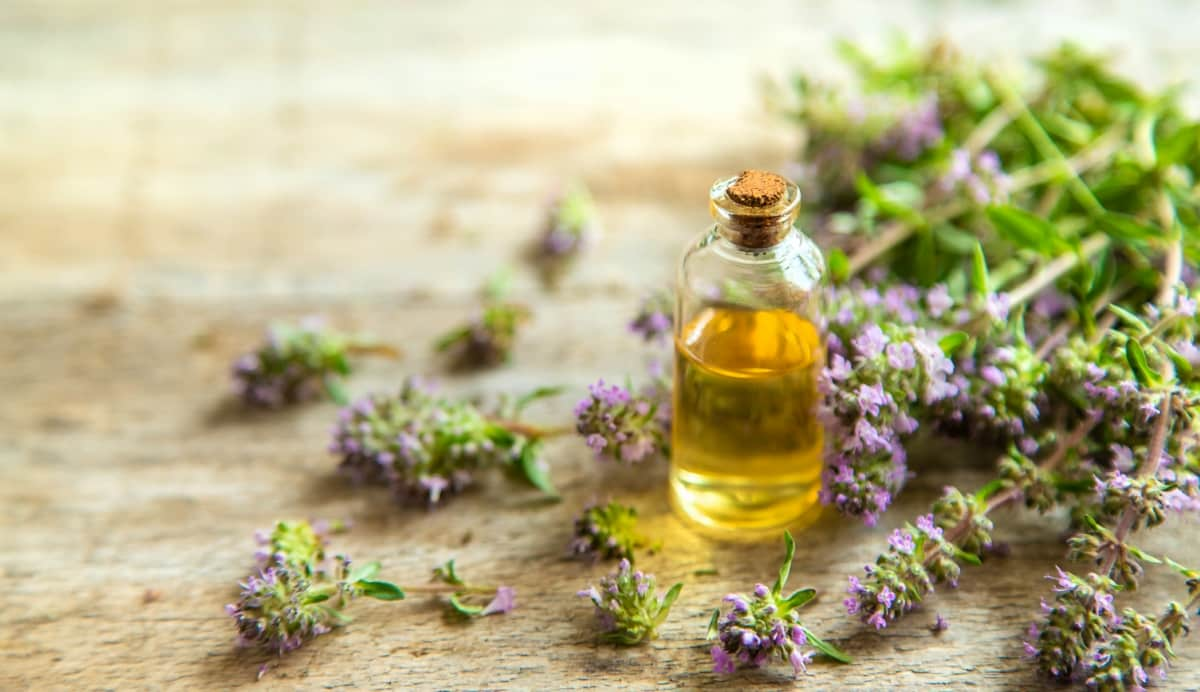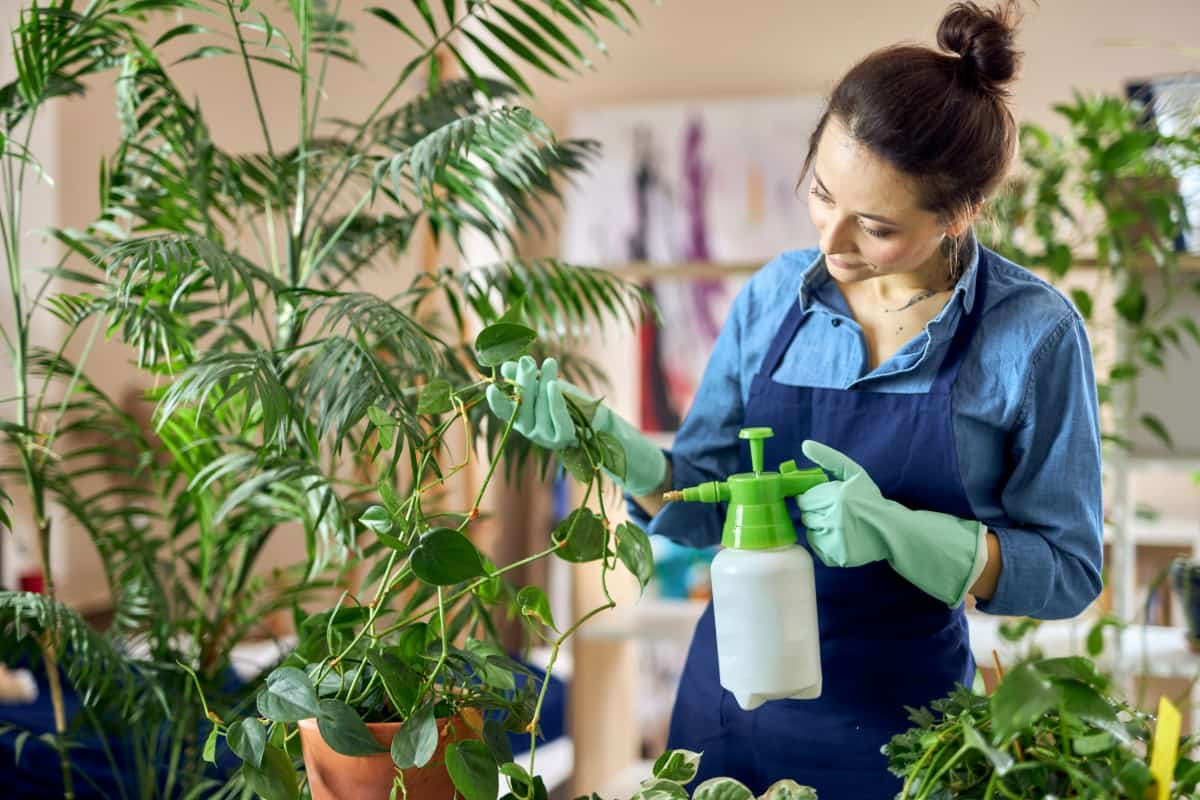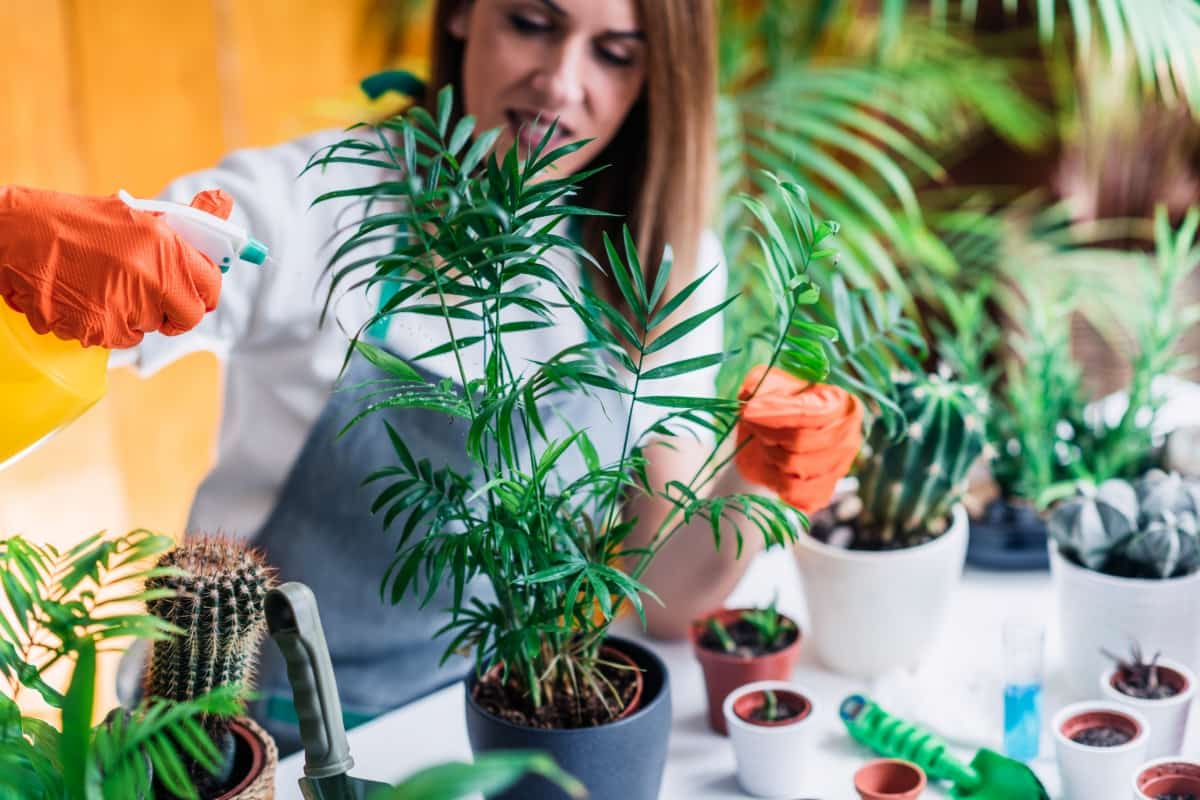Essential oils offer an effective and natural solution to combat pests that may infest your houseplants. Their aromatic properties not only add a pleasant scent to your home but also act as a deterrent for common pests. Many essential oils, such as neem, peppermint, and citronella, possess insect-repelling qualities while being safe for your plants and the environment. By harnessing the power of essential oils, you can create an organic bug control solution for your garden that is both effective and eco-friendly.

DIY Essential Oil Spray for Houseplant Pests
Step-By-Step Guide to Making Essential Oil Spray for Houseplants
Begin by selecting essential oils known for their pest-repelling properties, like neem or peppermint oil. In a spray bottle, combine 10-15 drops of your essential oil with a teaspoon of mild liquid soap. The soap acts as a carrier and helps the oil mix evenly. Fill the rest of the spray bottle with water. Shake the solution thoroughly to ensure proper blending.
Now, your organic bug control spray is ready for use. Apply the mixture directly to the leaves and soil of your houseplants, making sure to cover the surfaces evenly. Use the spray every one to two weeks or as needed for a natural and aromatic pest control solution that keeps your plants healthy and thriving.
How to Mix Essential Oil for Plants
Creating the perfect essential oil mix for your plants involves understanding the specific needs of each oil. For instance, peppermint oil is excellent for deterring ants and spiders, while neem oil is a potent insecticide. Experiment with different ratios and combinations to find the most effective blend for your houseplants. Always dilute essential oils with a carrier, like mild soap, to prevent any adverse effects on your plants. Regular application of your homemade essential oil spray will not only keep pests at bay but also promote a healthy and thriving indoor garden.
The Benefits of Essential Oil as a Natural Bug Repellent for Indoor Plants
Unlike synthetic pesticides, essential oils provide a chemical-free solution that is safe for both your plants and the environment. Many essential oils, such as citronella, eucalyptus, and tea tree oil, possess potent insect-repelling properties without harming beneficial insects. Additionally, these oils often emit pleasant fragrances, enhancing the indoor environment.
In case you missed it: Benefits of Mineral Fertilizer Sticks: How to Use for Indoor Potted Houseplants

The use of essential oils as bug repellents promotes a healthier alternative to traditional methods, avoiding the potential harm associated with chemical-based pesticides. This natural approach is particularly beneficial for indoor gardening, creating a safe and enjoyable space for both plants and occupants.
Essential Oil Spray Recipes for Different Types of Houseplant Pests
Neem and Peppermint Spray for Aphids
- Mix ten drops of neem oil and five peppermint oil drops with a teaspoon of mild liquid soap.
- Add the oil-soap blend to a spray bottle filled with water.
- Shake well and apply to affected plants, targeting aphid-infested areas.
Lemon and Eucalyptus Spray for Spider Mites
- Combine ten drops of lemon oil, five drops of eucalyptus oil, and a teaspoon of mild liquid soap.
- Dilute in water within a spray bottle and shake thoroughly.
- Spray on the leaves and undersides where spider mites commonly thrive.
Tea Tree and Lavender Spray for Fungus Gnats
- Mix ten drops of tea tree oil, five lavender oil drops, and a teaspoon of mild liquid soap.
- Fill this mixture to a spray bottle filled with water and shake well.
- Apply to the soil surface and lower leaves to deter and eliminate fungus gnats.
Cinnamon and Clove Spray for Ants
- Combine ten drops of cinnamon oil, five drops of clove oil, and a teaspoon of mild liquid soap.
- Dilute the mixture in water and shake thoroughly.
- Spray around the base of plants and entry points to deter ants.
How to Apply Essential Oil Spray to Protect Your Houseplants from Insects
Spray the solution onto the leaves directly and the soil of your plants, covering surfaces thoroughly. Apply every one to two weeks or as needed. Focus on areas where pests commonly gather. This natural insect-repelling spray not only safeguards your plants but also adds a refreshing aroma to your indoor space.
Using Essential Oil Insecticide as Safe and Effective Solution for Indoor Gardening
Opt for oils like neem, peppermint, or eucalyptus, known for their natural insect-repelling properties. Mix 10-15 drops of the chosen essential oil with a teaspoon of mild liquid soap in a spray bottle filled with water. Shake well to combine. Regularly apply the solution to the leaves and soil of your indoor plants to deter pests without harming the environment. This chemical-free approach not only safeguards your plants but also contributes to a healthier indoor gardening experience, promoting the well-being of both your green companions and your living space.
Organic Essential Oil Pest Control: DIY Tips for Healthy Houseplants
Choose oils like neem, peppermint, or tea tree for their potency. Mix 10-15 drops of the selected oil with a teaspoon of mild soap liquid in a water-filled spray bottle. Shake well and apply the solution to plant leaves and soil. This eco-friendly approach wards off pests without harmful chemicals, preserving the health of your houseplants. Regular application, every one to two weeks, provides ongoing protection. Embrace this organic solution to foster a thriving indoor garden while ensuring the well-being of your plants and the environment.
In case you missed it: Benefits of Baking Soda for Houseplants

Essential Oil Concentrate: Creating a Potent Bug Repellent for Your Indoor Garden
In a small container, mix 20-30 drops of the chosen essential oil with a teaspoon of mild liquid soap. Dilute the concentrate in water and transfer it to a spray bottle. Shake well before applying directly to the leaves and soil of your houseplants. This concentrated solution provides a robust defense against pests, ensuring a thriving indoor garden without resorting to harmful chemicals. Regular use maintains a pest-free environment, promoting the health and vitality of your plants.
Enhancing the Effectiveness of Essential Oil Spray with Natural Additives for Houseplants
Enhance pest control by adding a teaspoon of organic apple cider vinegar, known for its insect-repelling properties. Alternatively, infuse the mixture with a few crushed garlic cloves, a potent deterrent for many pests. These additions complement the essential oils, creating a more comprehensive and resilient bug-repellent. Ensure to shake the spray bottle well before each application to maintain a well-mixed solution.
Essential Oil Safety Precautions and Best Practices for Indoor Plant Care
Practice essential oil safety for indoor plant care by diluting oils properly; use 10-15 drops per teaspoon of mild liquid soap in a water-filled spray bottle. Test on a small plant area before widespread application. Apply sparingly, focusing on affected areas. Avoid using it on sensitive plants and in direct sunlight.
In case you missed it: Benefits of Neem Oil for Houseplants: Spray Recipe, How to Use, and Application

Keep the spray away from pets and children. Rotate essential oils to prevent pest resistance. Store oils in a cool, dark place. Regularly monitor plant health and adjust usage accordingly. By adhering to these precautions and best practices, you ensure effective pest control while safeguarding your plants and living space.
Conclusion
Crafting a DIY essential oil spray offers a natural and organic solution for safeguarding houseplants against pests. By harnessing the insect-repelling properties of essential oils, this homemade bug control recipe promotes a healthy indoor garden without resorting to harmful chemicals.
- Feed Your Flock for Less: Top 10 Tips to Save on Chicken Feed
- Ultimate Guide to Ossabaw Island Hog: Breeding, Raising, Diet, and Care
- Hatching Answers: The Top 10 Reasons Your Chickens Aren’t Laying Eggs
- Eggs and Economics: Breaking Down the Cost of Raising Backyard Chickens
- Defend Your Greens: Proven Methods to Keep Iguanas Out of Your Garden
- Ultimate Guide to Cinnamon Queen Chicken: A Comprehensive Guide for Beginners
- Ultimate Guide to California Tan Chicken: Breeding, Raising, Diet, Egg-Production and Care
- Ultimate Guide to Marsh Daisy Chicken: Breeding, Raising, Diet, and Care
- 10 Types of Chicken Farming Businesses You Can Start for Profits